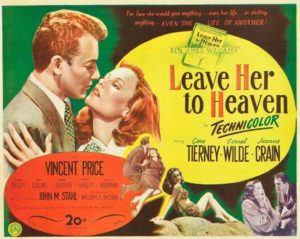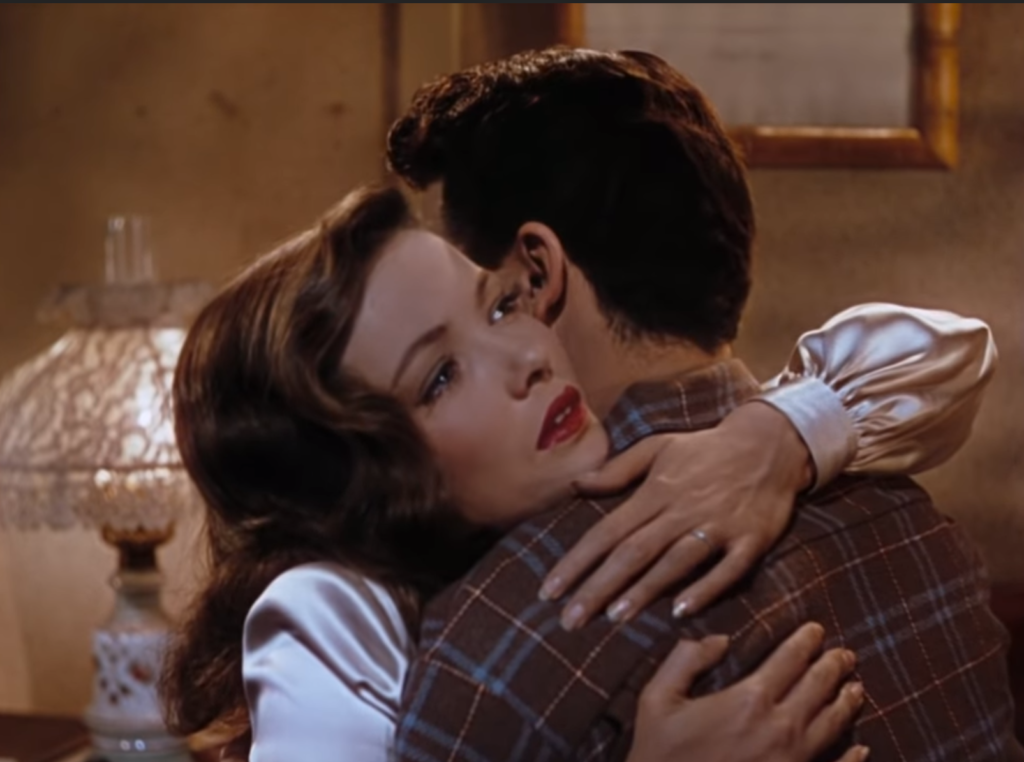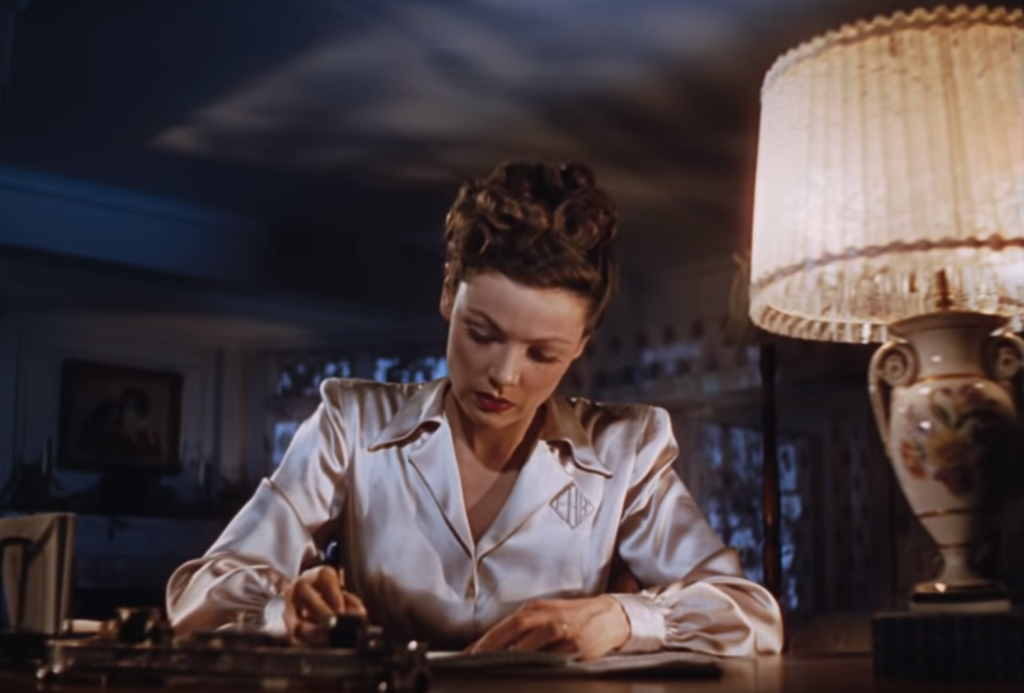|

Synopsis:
Shortly after the death of her beloved father, a socialite (Gene Tierney) breaks off her engagement with an aspiring politician (Vincent Price) and seduces a writer (Cornel Wilde) into marriage. When it becomes clear how deeply Ellen (Tierney) resents the presence of both Wilde’s disabled brother (Darryl Hickman) and her beautiful cousin (Jeanne Crain), Wilde begins to wonder — will Ellen (Tierney) stop at nothing to maintain complete control over him, even beyond death?
|
|
Genres, Themes, Actors, and Directors:
- Cornel Wilde Films
- Flashback Films
- Gene Tierney Films
- Jealousy
- Jeanne Crain Films
- Obsessive Love
- Psychopaths
- Vincent Price Films
Review:
After co-starring in Laura (1944), Gene Tierney and Vincent Price were reunited as ill-fated fiances in this Technicolor adaptation of Ben Ames Williams’ bestselling novel about a murderously possessive, psychopathic femme fatale. As noted in Bosley Crowther’s original review for the New York Times, the film is hampered by its “strictly one-dimensional” storyline, which serves simply to present the characters within lush settings as Tierney carries out her lethal agenda. Then again, this film really is all about Ellen — in fact, that film could easily have been named after her, as it’s her show all the way, with all other characters (Wilde’s dense novelist, Crain’s sweet romantic rival, Harland’s “golly gee!” disabled brother) simply serving as foils. Tierney’s Oscar-nominated performance is quite chilling, and her actions are treacherous enough to remain shocking even today — hence, the film’s reputation as a formative noir (though not one I’m a personal fan of, other than surface admiration).
Redeeming Qualities and Moments:
- Gene Tierney as Ellen

- Oscar-winning Technicolor cinematography by Leon Shamroy


Must See?
No, though it’s certainly worth a one-time viewing.
Links:
|
One thought on “Leave Her to Heaven (1945)”
Not must-see. A fairly ridiculous soap opera.
The main problem with this film is that DP Shamroy’s work is so good that one is …almost… led to think the film is good, too. This pic was certainly given a glossy production – but it simply plods along from scene to scene, each one full of the worst possible dialogue.
Things might be different if Tierney’s Ellen were as interesting a femme fatale as, say, Jane Greer in ‘Out of the Past’. But Ellen’s fierce (and one-note) egomania simply becomes tiresome, quickly.
Hardly anyone in the cast comes off well here. But the worst might be Wilde. ~through no fault of his own, really; his character is not really playable – right from the get-go. In their early ‘meet cute’ sequence, Tierney and Wilde are on the same train and she happens to be reading his newly published novel. Very coincidental but fair enough… except that Wilde uses pick-up lines on Tierney that are straight out of his own novel (!)… and he then claims to be unaware of it (!). (Also, for a male novelist, Wilde’s character’s writing style is less Hemingway and more Jacqueline Susann.) Wilde’s Richard reminds me of Hugh Marlowe’s playwright character in ‘All About Eve’: for someone who has a hit on Broadway season after season, he sure sounds brainless.
This film could also (arguably) contain Price’s worst performance (which is bizarre because Vincent is never bad!) – but it’s also possible he’s miscast. Nevertheless, he’s given too little to do and his presence isn’t memorable.
‘LHTH’ only has one more-or-less successful sequence – the significant tragedy midway. But, even there, Tierney seems to get through it clumsily instead of taking an opportunity for a little more depth.